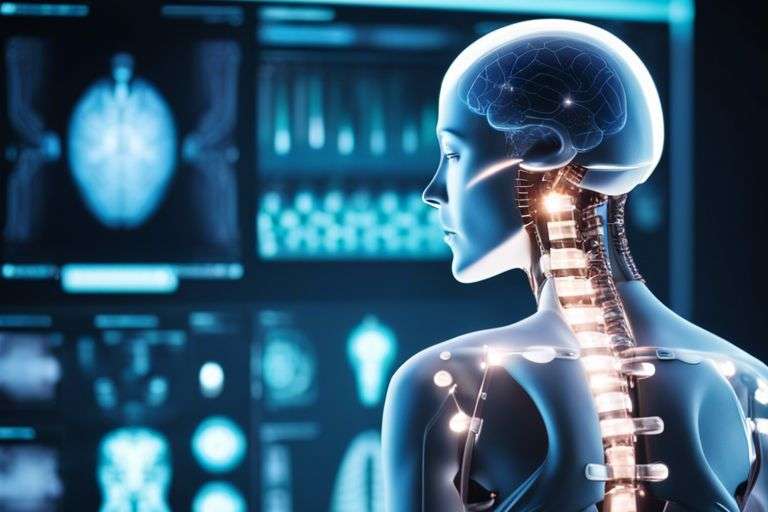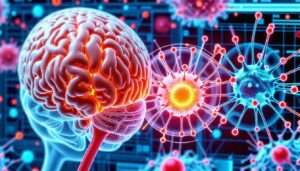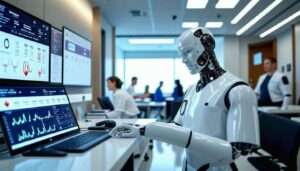Embark on a journey through the revolutionary world of artificial intelligence (AI) and the future of medical imaging. As technology continues to advance at a rapid pace, the impact of AI on the field of medical imaging is nothing short of profound. Imagine the ability to detect life-threatening conditions with greater speed and accuracy than ever before. Through the integration of AI, medical imaging is experiencing a transformational shift that promises to enhance the way healthcare professionals diagnose and treat patients. In this blog post, you will discover the potential benefits and challenges of AI in the realm of medical imaging, and how it could ultimately shape the future of healthcare for you and your loved ones.
Key Takeaways:
- AI has the potential to transform medical imaging: AI technology is revolutionizing the field of medical imaging by improving detection accuracy, diagnosis speed, and treatment planning.
- AI can assist in early disease detection: By analyzing large volumes of medical imaging data, AI algorithms can help identify subtle signs of disease at an early stage, leading to better patient outcomes.
- Integration of AI in medical imaging requires careful consideration: While AI has the potential to greatly benefit medical imaging, it is important to carefully consider the ethical, regulatory, and data privacy implications of its integration into clinical practice.
- Improved workflow efficiency with AI: AI-powered tools can streamline radiology workflows by automating repetitive tasks, reducing the burden on healthcare professionals, and allowing them to focus on critical decision-making.
- Ongoing research and development are essential: Continuous investment in research and development is critical to further harness the potential of AI in medical imaging, ensuring its safe and effective implementation in clinical settings.
Advancements in AI for Medical Imaging
While AI has made significant strides in various fields, its impact on medical imaging is particularly revolutionary. The advancements in AI for medical imaging have significantly improved diagnostic accuracy and efficiency, ultimately enhancing patient care and outcomes.
Machine Learning Techniques
One of the key advancements in AI for medical imaging is the utilization of machine learning techniques. Through machine learning, AI algorithms are trained to analyze large volumes of medical images and identify patterns that are indicative of various conditions. This allows for more accurate and timely diagnosis, as well as the ability to predict potential health issues before symptoms even manifest. With the ability to continuously learn and improve, these algorithms have the potential to revolutionize the way medical imaging is utilized in clinical practice.
Enhancements in Image Accuracy and Detail
AI has also led to significant enhancements in image accuracy and detail. By leveraging deep learning algorithms, AI can refine and enhance medical images to provide greater clarity and definition. This not only aids in more accurate diagnosis but also enables healthcare providers to identify and analyze minute details that may have previously gone unnoticed. The ability to visualize subtle abnormalities with greater precision has proven to be instrumental in early detection and treatment of various medical conditions.
AI Applications in Medical Imaging
Clearly, artificial intelligence (AI) has revolutionized the field of medical imaging, offering unprecedented opportunities to improve diagnosis, treatment planning, and patient care. AI algorithms can analyze medical images with remarkable speed and accuracy, assisting healthcare professionals in making more informed decisions and providing personalized treatment options for patients. The applications of AI in medical imaging range from diagnostic radiology to therapeutic planning and interventional procedures, creating a powerful synergy between technology and medicine.
Diagnostic Radiology
In diagnostic radiology, AI algorithms have significantly enhanced the interpretation of medical images such as X-rays, CT scans, and MRIs. These algorithms can rapidly identify abnormalities, detect early signs of disease, and classify findings with a high level of precision, helping you to receive faster and more accurate diagnoses. Additionally, AI-based image analysis can streamline the workflow of radiologists, allowing them to focus on complex cases and providing more personalized care to patients.
Therapeutic Planning and Interventional Procedures
When it comes to therapeutic planning and interventional procedures, AI plays a crucial role in optimizing treatment strategies and guiding minimally invasive interventions. By analyzing medical images and patient data, AI can assist healthcare providers in planning surgeries, determining the most effective treatment options, and ensuring the safety and success of procedures. This advanced technology empowers you to benefit from personalized treatment plans and minimally invasive interventions that are tailored to your specific medical needs, leading to improved outcomes and a higher quality of care.
You can trust that AI applications in medical imaging are revolutionizing the field of healthcare, providing you with faster and more accurate diagnoses, personalized treatment options, and improved patient care. Embracing the potential of AI in medical imaging can undoubtedly lead to significant advancements in the diagnosis and treatment of various medical conditions while ultimately enhancing your overall healthcare experience.
Challenges and Considerations
Despite the potential benefits of AI in medical imaging, there are several challenges and considerations that need to be addressed. One of the key issues is the need for high-quality data to train AI algorithms. Your medical images must be of high resolution and accurately annotated to ensure the AI systems can make accurate diagnoses. Additionally, there is a concern about the lack of standardization in medical imaging data, which can lead to inconsistencies in AI algorithms.
Ethical and Privacy Concerns
One of the most pressing concerns surrounding AI in medical imaging is the ethical and privacy implications. Your medical images contain sensitive personal information, and there is a risk that this data could be compromised if not properly secured. There are also ethical considerations surrounding the use of AI in making medical diagnoses, as it raises questions about the role of AI in replacing human expertise and the potential impact on patient-doctor relationships.
Integration with Existing Healthcare Systems
Integrating AI into existing healthcare systems presents another significant challenge. Your healthcare providers may need to invest in new infrastructure and technologies to support the use of AI in medical imaging. Additionally, there may be resistance from healthcare professionals who are concerned about the impact of AI on their roles and the quality of patient care. It is essential to carefully consider how AI will be integrated into existing workflows to ensure a smooth transition and maximize the benefits for both healthcare providers and patients.
Future Directions
After learning about the current applications of AI in medical imaging, you may be curious about what the future holds for this technology. The potential for AI in medical imaging is vast and continues to expand. To explore further, you can check out The Future of Radiology And Artificial Intelligence on Medical Futurist.
Improving Access and Affordability
One of the most exciting prospects for the future of AI in medical imaging is its ability to improve access and affordability for patients. With AI’s assistance, medical images can be interpreted more quickly and accurately, allowing for expedited diagnoses and reducing the need for follow-up appointments. This can not only save you time and effort but also minimize healthcare costs. Additionally, AI has the potential to expand access to medical imaging in underserved areas or regions with limited resources, ensuring that more people can receive the diagnostic care they need.
Potential for Personalized Medicine
Another promising direction for AI in medical imaging is its role in advancing personalized medicine. By analyzing large volumes of medical data, including imaging results, AI can help identify patterns and trends specific to individual patients. This personalized approach can lead to more targeted and effective treatments tailored to your unique medical needs. Furthermore, AI may contribute to the development of predictive models that can anticipate the trajectory of certain conditions, enabling early intervention and improving long-term outcomes for patients.
AI and the Future of Medical Imaging
Upon reflecting on the developments in AI and its role in the future of medical imaging, you can see the potential for transformative change in the field. The integration of AI technology with medical imaging has already shown promising results in improving diagnostic accuracy, efficiency, and overall patient care. According to a recent article by Time, AI is reshaping medical imaging and radiology, leading to better outcomes for patients. As AI continues to advance and become more sophisticated, you can expect it to play an increasingly integral role in the future of medical imaging, revolutionizing the way healthcare professionals diagnose and treat a wide range of medical conditions. To stay informed about these exciting advancements, you can read the full article on How AI Is Changing Medical Imaging to Improve Patient Care.
FAQ
Q: What is AI and its role in the future of medical imaging?
A: AI, or artificial intelligence, is the use of computer algorithms to perform tasks that typically require human intelligence. In the future of medical imaging, AI will play a critical role in improving accuracy, efficiency, and interpretation of medical images, leading to better patient care and outcomes.
Q: How will AI impact the field of medical imaging?
A: AI will revolutionize medical imaging by enabling advanced image analysis, automation of repetitive tasks, and personalized treatment planning. It will also assist in early disease detection and intervention, ultimately transforming the way healthcare professionals diagnose and manage medical conditions.
Q: Is AI capable of outperforming human radiologists in interpreting medical images?
A: While AI has shown remarkable capabilities in image analysis, it is not a replacement for human radiologists but rather a tool to enhance their expertise. AI can assist radiologists by providing additional insights, reducing interpretation errors, and increasing the efficiency of image review and diagnosis.
Q: What challenges and concerns are associated with integrating AI into medical imaging?
A: Challenges include the need for high-quality, diverse training data, potential biases in AI algorithms, ethical considerations, and the need for regulatory oversight. Additionally, there is concern about the impact on radiology workflow and the potential displacement of jobs. These issues must be carefully addressed in the deployment of AI in medical imaging.
Q: What are the current applications of AI in medical imaging, and what can we expect in the future?
A: Current applications of AI in medical imaging include image reconstruction, segmentation of organs and tissues, detection of abnormalities, and prediction of patient outcomes. In the future, we can expect AI to facilitate precision medicine, enable real-time image analysis, and support decision-making for complex medical cases, ultimately leading to improved patient care and outcomes.




